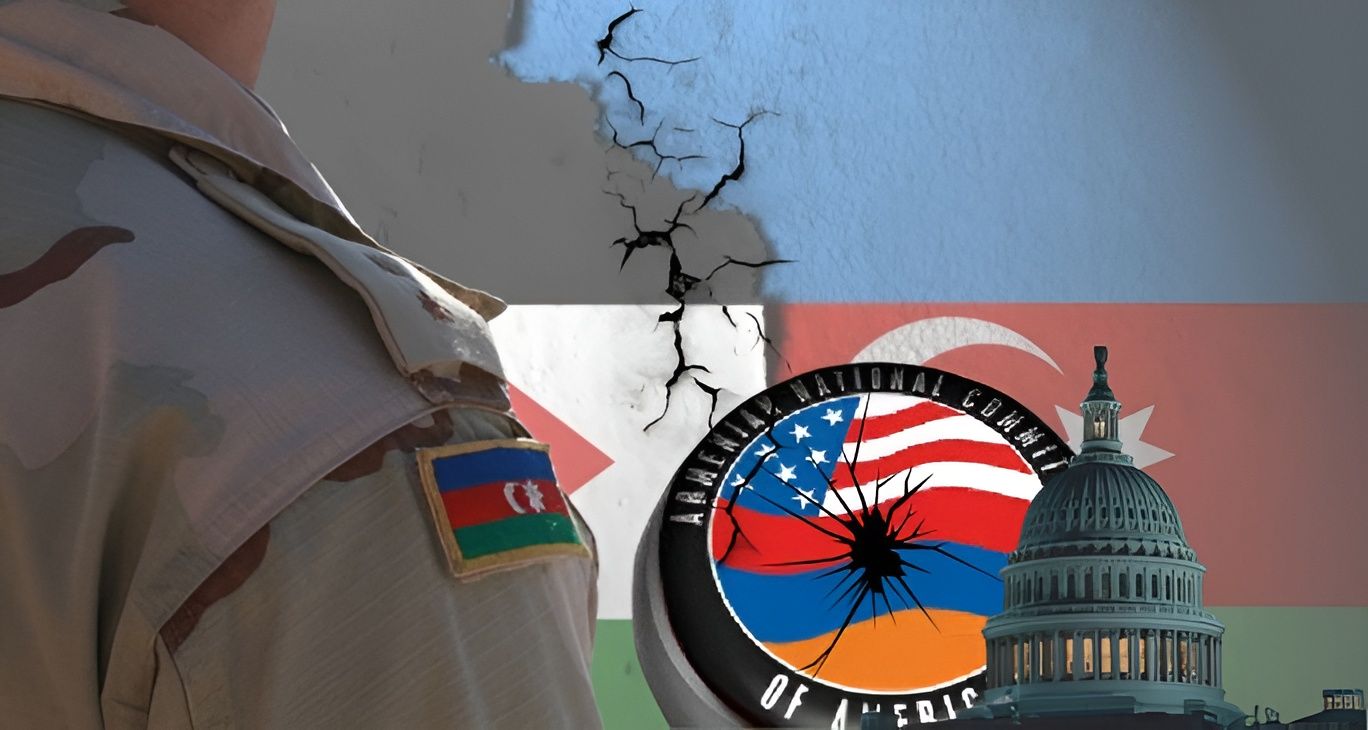ANCA's revanchist drive targets Azerbaijan’s peacekeeping role in Gaza

In recent weeks, the Armenian National Committee of America (ANCA) has embarked on yet another campaign of disinformation. This time, attempting to pit Azerbaijan against Palestine. The effort reflects not only a calculated act of political sabotage but also a revealing example of how diaspora lobbying, driven by revanchism and historical grievance, continues to distort Washington’s policy in both the South Caucasus and the wider Middle East.
According to sources and public advocacy statements, ANCA has mobilised its media and lobbying network to portray Azerbaijan’s peacekeeping mission to Gaza as a threat to regional balance, while falsely insinuating that Baku’s actions contradict Muslim solidarity with the Palestinian cause. It is a narrative built on cynical distortion, one designed to erode the trust that Azerbaijan has long fostered with the Muslim world and to provoke discord among nations that share deep religious and humanitarian ties.
For decades, Azerbaijan has been a consistent supporter of the Palestinian people and their right to statehood under international law. The country’s position is neither opportunistic nor rhetorical; it is embedded in its foreign policy and reflected in its voting record at the United Nations and the Organisation of Islamic Cooperation. The proposed deployment of an Azerbaijani peacekeeping contingent to Gaza, coordinated with regional partners and in line with the principles of humanitarian protection, is intended to contribute to stability, not escalation. Yet, for ANCA, any positive initiative associated with Azerbaijan must be met with obstruction, no matter how beneficial it may be for regional peace.
This latest campaign reveals a familiar playbook. ANCA, the most visibly radical and revanchist-leaning Armenian-American lobby, operates through a network of political pressure, social media agitation, and partnerships with sympathetic NGOs to shape congressional and media narratives. Its overarching goal is to isolate Azerbaijan diplomatically and to keep the shadow of the Garabagh conflict alive, even after the full restoration of Azerbaijan’s territorial integrity in 2023. By invoking Palestine, an emotionally charged cause in global politics, ANCA seeks to manipulate Muslim sentiment, positioning Armenians as victims and Azerbaijanis as aggressors, despite the overwhelming evidence to the contrary.
It is no secret that ANCA has long exercised disproportionate influence in Washington. Through campaign donations, advocacy events, and an entrenched presence on Capitol Hill, it has managed to turn narrow ethno-nationalist agendas into broader human rights talking points. The result is often the distortion of reality, where aggressors are cast as victims and peacebuilders as threats. Its ongoing campaign to pressure the US government into excluding Azerbaijan from the list of countries contributing peacekeeping forces to Gaza is only the latest manifestation of this strategy.
The irony, however, runs deep. By attempting to block Azerbaijan’s participation in peacekeeping operations, ANCA effectively undermines the very stability that Armenia itself could benefit from. A peaceful South Caucasus, interconnected through trade, infrastructure, and diplomacy, would serve all regional populations, including the Armenians of Armenia proper. Yet ANCA’s revanchist mindset cannot tolerate a post-war reality in which Azerbaijan is a regional stabiliser and an emerging bridge between East and West. It aims to perpetuate tension, even if that means encouraging divisions within the Muslim world.
A dangerous logic is at play here. By framing Palestinians as sympathetic to the Armenian cause and by extension, hostile to Azerbaijan, the ANCA is not only falsifying political alignments but also sowing interreligious discord. In truth, Palestine has never positioned itself against Azerbaijan; both countries have historically enjoyed warm diplomatic relations, and their peoples share the bonds of Islamic heritage and mutual respect. ANCA’s attempt to turn Muslims against one another represents not mere propaganda, but a moral corruption of advocacy, an act that, as one observer noted, “outsmarts the devil’s thinking.”
At a geopolitical level, this campaign coincides with a broader shift in the region’s power dynamics. The United States under President Donald Trump has sought to recalibrate its Middle East policy through pragmatic engagement and the expansion of the Abraham Accords framework. Azerbaijan’s potential role as a peacekeeping contributor aligns with Washington’s interest in promoting stability and cooperation among its regional partners. Yet ANCA’s lobbying threatens to derail this process by injecting toxic ethno-political narratives into what should be a shared humanitarian effort.
Indeed, ANCA’s history of opposing US-Azerbaijan cooperation is well-documented. From blocking military assistance under Section 907 of the Freedom Support Act to lobbying against energy partnerships in the Caspian, the organisation has persistently worked to restrict Baku’s strategic room for manoeuvre. Today, it goes further, seeking to influence the White House to reverse decisions already approved at the highest level, even if that means challenging the authority of President Trump himself. Such behaviour exposes the hubris of diaspora politics when it begins to believe it can override elected governments in pursuit of historical vengeance.
What is particularly troubling is the extent to which such campaigns damage America’s credibility as a neutral actor in post-conflict regions. When Washington’s foreign policy appears hostage to well-funded diaspora lobbies, its diplomatic consistency suffers. Allies begin to question US intentions, while adversaries exploit the divisions. For Azerbaijan, however, such attacks have become almost routine, tests of resilience for a nation that has learned to counter not only military aggression but also the wars of narrative fought far from its borders.
To understand ANCA’s aggression is to appreciate its fear: the fear of irrelevance in a changing geopolitical landscape. As Azerbaijan consolidates peace, strengthens its alliances with Türkiye and Pakistan, and positions itself as a connector between the South Caucasus, the Middle East, and Central Asia, the Armenian lobby faces an existential dilemma. Its raison d’être, opposition to Azerbaijan’s progress, is eroding. Hence, it seeks new theatres of confrontation, whether in Washington’s corridors of power or in the echo chambers of social media.
But the world has moved on. The South Caucasus today is defined not by frozen conflicts but by corridors, connectivity, and cooperation. Azerbaijan’s constructive engagement in Gaza or elsewhere represents a continuation of that vision; a vision based on peace, not provocation. ANCA’s revanchist tactics, by contrast, belong to a bygone era of grievance politics.
Ultimately, the choice before Washington is not between Armenia and Azerbaijan, or between competing lobbies, but between stability and sabotage. If the United States wishes to maintain its credibility as a global peacemaker, it must resist being swayed by the narrow, divisive agendas of diaspora politics. And if the Armenian lobby insists on setting fires between nations and communities, even those bound by faith, then it should be called what it is: an obstacle to peace in both the Caucasus and the Middle East.
Here we are to serve you with news right now. It does not cost much, but worth your attention.
Choose to support open, independent, quality journalism and subscribe on a monthly basis.
By subscribing to our online newspaper, you can have full digital access to all news, analysis, and much more.
You can also follow AzerNEWS on Twitter @AzerNewsAz or Facebook @AzerNewsNewspaper
Thank you!

